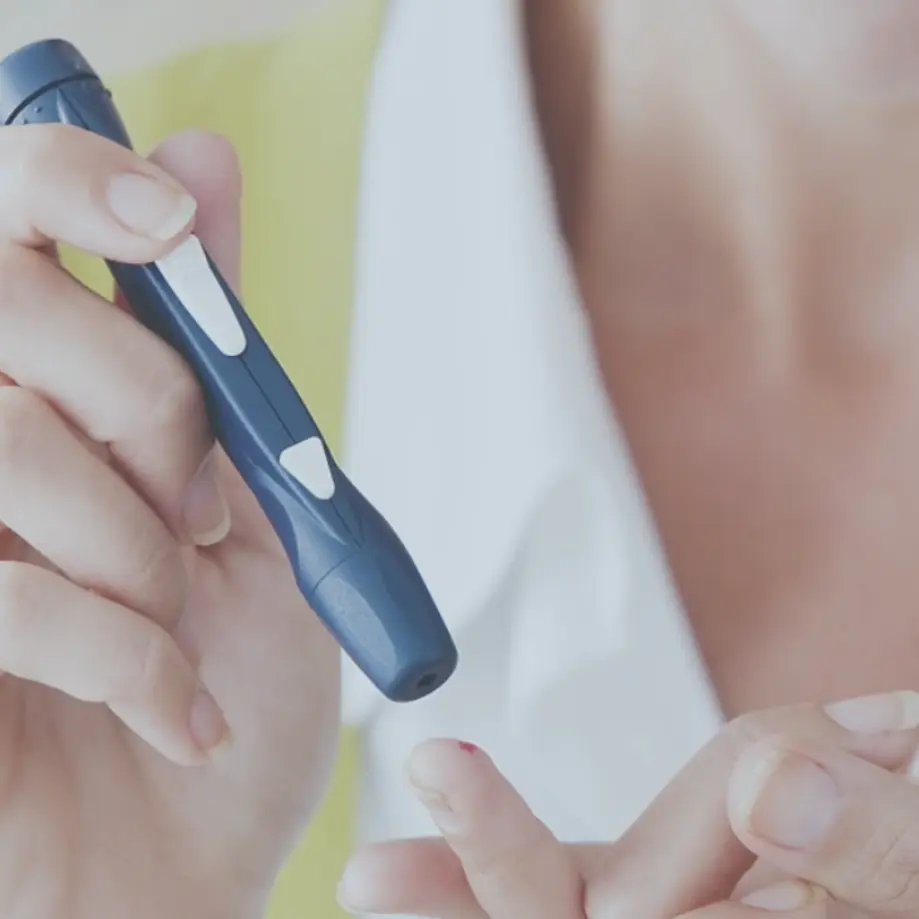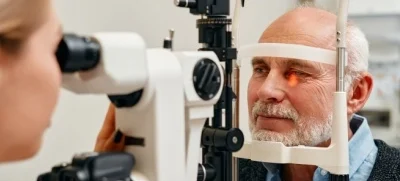
Diabetic Eye Care
The eye doctors at Cincinnati Eye Institute specialize in diagnosing and managing diabetic eye disease and we are dedicated to preserving vision for patients with diabetes.
Diabetes (type 1 and type 2) can affect vision and eye health and may even cause blindness if left untreated. Fortunately, excellent treatment options are available for diabetic eye disease and many diabetes-related eye problems, including vision loss, can be prevented with regular eye exams from an experienced
Trusted Source
Eye Complications
American Diabetes Association
Go to Source
provider.

Diabetes and Vision Loss
For Americans between the ages of 18 to 64, diabetes is the leading cause of vision loss; however, up to 95% of diabetes-related vision loss can be prevented with regular
Trusted Source
Focus on Diabetes
American Diabetes Association
Go to Source
eye exams.
There are several eye conditions that commonly affect people with diabetes:
Diabetic Retinopathy
Diabetic retinopathy is an eye disease in which the blood vessels that supply the retina are damaged. This condition is the leading cause of vision loss for people with
Trusted Source
Diabetic Retinopathy
National Eye Institute
Go to Source
diabetes.
Macular Edema
Macular edema is a serious complication of diabetic retinopathy that happens when fluid leaks into the retina.
Cataracts
A cataract is a clouding of the eye’s lens. While cataracts are a common age-related eye condition, they affect people with diabetes at a higher rate and at an earlier age.
Glaucoma
Glaucoma is an eye condition in which increased fluid pressure causes damage to the optic nerve. People with diabetes are twice as likely to develop
Trusted Source
Diabetes and Your Eyesight
Glaucoma Research Foundation
Go to Source
glaucoma.
Retinal Detachment
Retinal detachment is an emergency condition in which the retina begins to pull away from the rest of the
Trusted Source
Retinal Detachment
Mayo Clinic
Go to Source
eye.
It is more common in people with diabetes that is not properly managed and it requires immediate medical attention.
Diabetic Eye Exams

Why Diabetic Eye Exams Are Important
Without regular eye exams, you may not know you have diabetic eye disease until it begins to affect your vision. Many conditions, such as diabetic retinopathy, do not cause any pain or vision symptoms at first. Without early treatment, the condition could reach an advanced stage and vision loss may be permanent. However, diabetic eye disease is very manageable when it is diagnosed early. Regular eye exams can help you to maintain good eye health and vision. Your annual diabetic eye exam can also be an early warning sign of other physical changes that need to be addressed.
How Often Should a Person With Diabetes Have an Eye Exam?
You should have a complete eye exam at least once a year. Schedule your annual eye exam with an eye doctor who is experienced in caring for patients with diabetes. A yearly exam helps establish a baseline for your eye health and vision and your eye doctor will let you know if you need more frequent exams. While most vision exams are not covered by regular health insurance, diabetic eye exams may be considered a medical eye exam which is medically necessary and is often covered by health insurance.
You should schedule an appointment with your eye doctor right away if you experience any eye pain or sudden changes in vision, such as increased floaters, flashes of light, double vision, blank spots in your vision, or blurry vision.
What to Expect at Your Diabetic Eye Exam
Many diabetes-related eye conditions affect the retina, so your eye doctor will use several diagnostic tools to assess your retina. These tests are typically quick and painless. Your eye doctor will use special eye drops to dilate your pupils in order to see your retina, so you should plan to have someone drive you home from your appointment since your vision may be slightly blurry for several hours. During your exam, you will also be checked for cataracts, glaucoma, and other potential eye problems.

Contact Cincinnati Eye Institute for Diabetic Eye Care
The eye doctors at Cincinnati Eye Institute are widely regarded as top specialists and leaders in their field. We are highly experienced in caring for the eye health and vision of patients with diabetes. Contact us to learn more or schedule your appointment.
1 American Diabetes Association. Eye Complications. Available: https://www.diabetes.org/diabetes/complications/eye-complications Accessed September 28, 2020.
2 American Diabetes Association. Focus on Diabetes. Available: https://diabetes.org/health-wellness/eye-health Accessed November 29, 2025.
3 National Eye Institute. Diabetic Retinopathy. Available:https://www.nei.nih.gov/learn-about-eye-health/eye-conditions-and-diseases/diabetic-retinopathy Accessed September 28, 2020.
4 Glaucoma Research Foundation. Diabetes and Your Eyesight Available: https://glaucoma.org/understanding-glaucoma/risks Accessed September 28, 2020.
5 Mayo Clinic. Retinal Detachment. Available: https://www.mayoclinic.org/diseases-conditions/retinal-detachment/symptoms-causes/syc-20351344 Accessed September 28, 2020.
The doctors at Cincinnati Eye Institute have either authored or reviewed the content on this site.




















